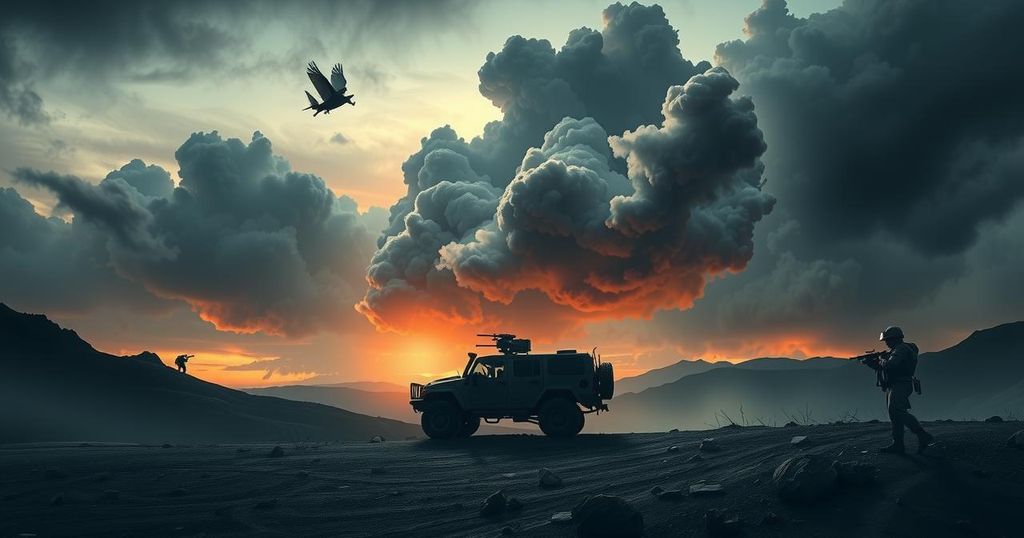Congo Mobilizes Youth Against M23 Rebels Amid Rising Tensions

Congo’s President Félix Tshisekedi has urged youth to join the military to counter M23 rebels expanding from Goma. The rebels, supported by Rwanda, threaten stability in resource-rich eastern Congo. Regional leaders call for peace talks amid rising tensions, heightened by historical ethnic conflicts and competition for mineral wealth.
GOMA, Congo (AP) — In response to the advancing M23 rebels, Congo’s President Félix Tshisekedi has urged the youth to enlist in the military to confront the Rwanda-supported armed faction, which seeks to expand its control in eastern Congo. Speaking publicly for the first time since the rebels launched an offensive against Goma, Tshisekedi expressed his commitment to a strong military and peaceful resolution, declaring, “Enlist massively in the army because you are the spearhead of our country.”
The M23 rebels, now reinforced by approximately 4,000 Rwandan troops, have escalated their operations since their initial control of Goma in 2012, posing a significant challenge to a Congolese military already weakened by the withdrawal of foreign contractors. Witnesses report rising tension as the rebels move toward Bukavu, causing panic among residents in the region that is home to over six million internally displaced individuals.
Regional leaders have urged Tshisekedi’s administration to engage in dialogue with the M23 rebels amidst rising instability. However, his absence at the recent virtual summit highlights the complexity of the negotiations, particularly as both the U.N. and various African nations advocate for an immediate ceasefire. Concerns have mounted regarding potential regional conflicts, especially following President Ramaphosa’s statements attributing local turmoil to Rwandan forces, which incited a harsh rebuttal from Rwandan President Paul Kagame.
Analysts emphasize that the core issue lies in competition for the vast mineral wealth in eastern Congo, estimated at $24 trillion. The M23 rebels have signaled intentions to establish a lasting presence, potentially complicating any future withdrawal. This ongoing conflict is rooted in a history of ethnic tension that dates back to the 1994 Rwandan genocide, with M23 claiming to protect Congolese Tutsis from Hutu hostility, underscoring the complexities of allegiance and historical grievances in the region.
This conflict in the eastern Democratic Republic of the Congo involves longstanding tensions arising from ethnic divisions and competing interests over rich mineral resources. The M23 rebel group, which has received military backing from Rwanda, has exacerbated the situation by capturing strategic locations like Goma. The Congolese government, previously reliant on foreign military contractors, now faces a formidable internal threat, prompting calls for national mobilization while regional leaders advocate for peace talks to resolve the escalating conflict.
Congo’s government is mobilizing young people to bolster military efforts against the advancing M23 rebels, who are backed by Rwanda. Tensions in the region are escalating as international calls for dialogue and ceasefire grow louder. Analyzing the historical roots of this conflict reveals a complex web of ethnic strife and competition for resources, underscoring the need for a concerted effort towards sustainable peace.
Original Source: apnews.com








